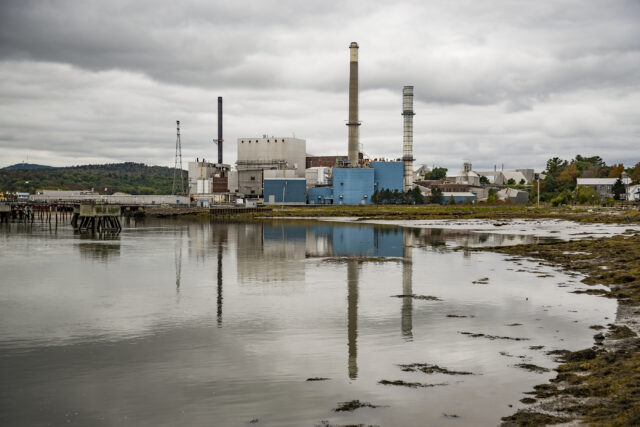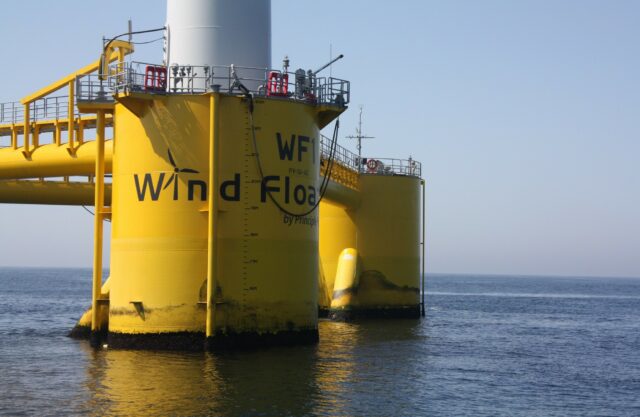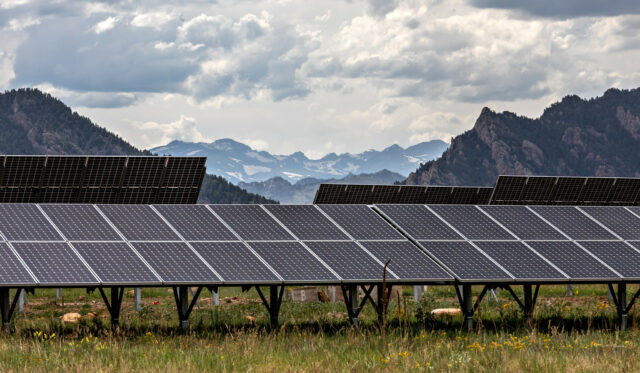CESA Blog
Can Table Salt Save the Energy Storage Industry? Experts Consider Sodium-Ion Batteries a Viable Alternative to Lithium-Ion
The most prevalent type of battery on the market today is lithium-ion. These batteries are used in cell phones, laptops, electric vehicles, and in both residential and grid-scale energy storage installations. Projections show that by 2029, demand for lithium-ion batteries will outpace the global supply of lithium. A recent webinar hosted by the Energy Storage…
CESA Offshore Wind Accelerator Year in Review – 2024
As the year comes to a close, CESA would like to thank all of our partners involved in our Offshore Wind Accelerator. CESA’s offshore wind projects are truly collaborative endeavors, and we are grateful to the talented staff in state and national governments, our colleagues at community-based environmental justice organizations and nonprofit organizations, and our…
Playing The Long Game: Why States Are Turning Their Attention to Long-Duration Energy Storage
After a decade of lithium-ion procurement, the leading clean energy states are finally turning their attention to long duration energy storage. Although it may still seem like a new idea, state-mandated procurement of energy storage has actually been going on for more than a decade. As of mid-2024, twelve U.S. states have set intentions to…
Three Questions with Kristin Urbach, Executive Director of the Connecticut Offshore Wind Collaborative
At the beginning of this year, the State of Connecticut launched the Connecticut Wind Collaborative (CWC), a nonprofit organization dedicated to advancing the offshore wind industry in the state. The CWC was conceptualized in Connecticut’s Offshore Wind Strategic Roadmap, published last October. CESA’s Sam Schacht spoke to CWC Executive Director, Kristin Urbach, about how she sees the new organization…
Three Questions with Kathryn Wright, Senior Program Officer for Clean Energy at the Barr Foundation, and Jay Campbell, Partner at Hart Research
In the fall of 2023, Connecticut, Massachusetts, and Rhode Island signed a Memorandum of Understanding to collaborate on offshore wind procurement. The MOU allows project developers to submit bids to multiple states at once, which could attract larger projects and drive down energy costs. This past July, the Barr Foundation and Hart Research published Views…
Four Leading State Clean Energy Programs win National Award
The Clean Energy States Alliance is pleased to announce the recipients of the 2024 State Leadership in Clean Energy Awards. Since 2009, the biennial Leadership Awards have recognized outstanding state programs and projects that have accelerated the adoption of clean energy technologies. The four winners were chosen by an independent panel of distinguished judges and…
Future of Clean Energy is Brighter as State Summit on IRA/BIL Implementation Concludes
On April 17 and 18, 2024, 37 states, the District of Columbia, and federal government representatives gathered in Washington, DC, at “IRA, BIL, and the Future of Energy: A Summit to Support State Implementation.” The Summit, sponsored by the U.S. Department of Energy’s (US DOE) Office of Policy and co-hosted by the Clean Energy States…
New CESA Report: The Case for Replacing Fossil-Fueled Peaker Power Plants with Battery Energy Storage
Fossil-fueled peaker power plants are expensive, polluting and inefficient. They are also disproportionately sited in low-income communities, communities of color, and areas already overburdened by pollution, creating equity, public health and environmental concerns. Now, a new report from the Clean Energy States Alliance (CESA) shows that battery storage can cost-effectively replace aging fossil-fueled peakers in…
Three Questions with Stephanie Watson, Floating Offshore Wind Manager at the Maine Governor’s Energy Office
The Gulf of Maine contains some of the nation’s best offshore wind resources, but its deep ocean and harsh conditions present formidable obstacles to offshore wind development. Maine has embraced the challenge, with Governor Janet Mills signing An Act Regarding the Procurement of Offshore Wind Energy Resources this past summer, authorizing the state to procure…
“Solar for All” Applications Forecast Bipartisan Support for and Monumental Expansion of Low-Income Solar Market
“I have not pulled all-nighters like this since college!” is not something you hear every day from state energy officials. And yet, it reflects the excitement felt across the country in states both red and blue since last summer when the U.S. Environmental Protection Agency (EPA) launched the $7 billion Solar for All competition, a…
Three Questions with Chris Kearns, Acting Commissioner of the Rhode Island Office of Energy Resources
In October 2023, Massachusetts, Connecticut, and Rhode Island signed a memorandum of understanding (MOU) to create a pathway toward the nation’s first multi-state offshore wind power procurement solicitation. The MOU allows developers to submit bids to the three states at once, which could potentially reduce costs for ratepayers, diversify the region’s energy portfolio and expand…
Browse by Project
- IRA & BIL Implementation
- 100% Clean Energy Collaborative
- Building Decarbonization and Clean Heating/Cooling
- Energy Storage Policy for States
- Energy Storage Technology Advancement Partnership
- Interstate Turbine Advisory Council
- Low- and Moderate-Income Clean Energy
- New England Solar Cost-Reduction Partnership
- Offshore Wind
- Renewable Portfolio Standards
- Scaling-Up Solar for Under-Resourced Communities
- Solar with Justice: Connecting States and Communities
- State Energy Strategies Project
- State Leadership in Clean Energy
- Sustainable Solar Education Project











